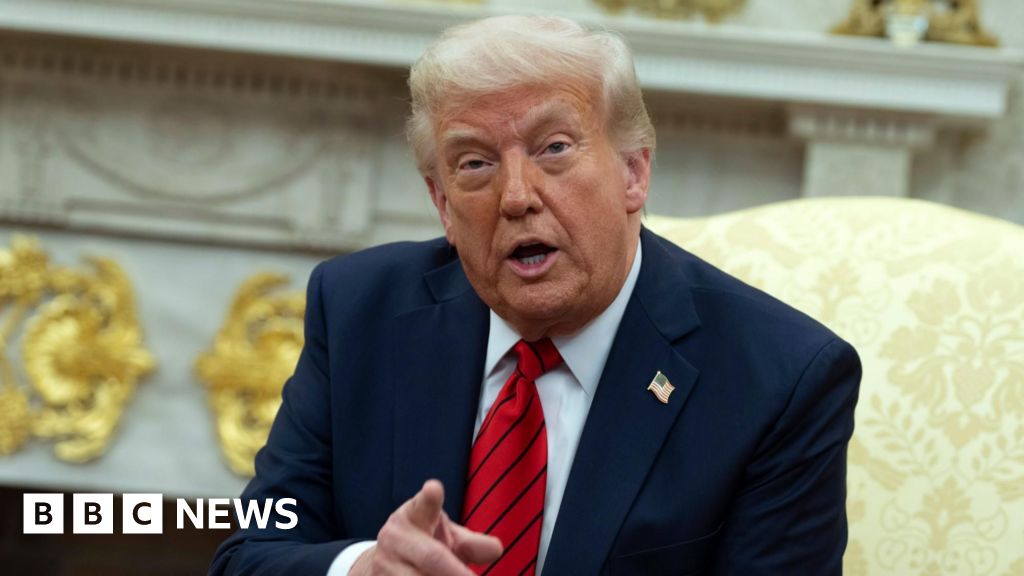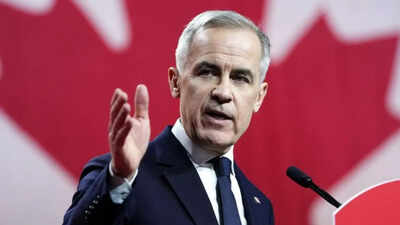Reform and Greens Aim High in Volatile Mayoral Contests

As the first electoral test for Labour looms after their sweeping general election win, the political landscape appears increasingly unstable. Voter sentiment is shifting, and parties like Reform UK are gaining traction in the polls, while the Liberal Democrats and Greens are also eager to capitalize on the growing disenchantment with both Labour and Conservative parties in the upcoming English local elections. The question on everyones mind is whether these rising poll numbers can translate into actual political power on May 1.
Among the different electoral battlegrounds, Hull presents a unique case study. Under the pleasant spring sun, families are out enjoying the shops and cafes, with a windy breeze from the Humber estuary providing a refreshing contrast to the warming cobblestones. However, beneath this seemingly tranquil facade lies a fiercely competitive race to determine the first mayor of the Hull and East Yorkshire Combined Authority (Heyca), a contest that could provide key insights into the volatile and fragmented state of British politics as we move into 2025.
The political landscape of Hull and the East Yorkshire Combined Authority is diverse, serving approximately 600,000 residents situated on the north side of the Humber estuary. Labour has historically dominated this area, with all three of its Members of Parliament representing the city. Yet, it is noteworthy that the council has been under Liberal Democrat control for the past three years. The Conservative Party, on the other hand, remains robust in the surrounding market towns and villages within the East Riding of Yorkshire, successfully securing all parliamentary seats in that region and forming the largest group on the local council.
Kemi Badenoch, the Conservative leader, has publicly cautioned the party about facing extremely difficult local elections ahead. Despite these warnings, local Conservative candidate Anne Handley exudes confidence. As the leader of East Riding of Yorkshire Council, which operates under a minority governance model, Handley acknowledges that the Conservatives have faced negative media portrayal following a record defeat in the last general election. Nevertheless, she believes that voters are more focused on the candidates themselves rather than their political affiliations.
Reform UK has made headlines by selecting Luke Campbell, a local hero and Olympic champion bantamweight boxer from the London 2012 Games, as their candidate for mayor. Campbell, who identifies as a political outsider, believes he can "bridge the gap" between the government and a community he feels has been neglected. He aims to replicate some of the success seen by Donald Trump in the United States, tapping into a pervasive sense of disillusionment among voters in the area. "We need to make Britain great again," Campbell asserts.
Local sentiments toward Reform UK are varied. Artist Nelly Richards, who owns a shop on Hull's main shopping avenue, believes that Reform may be poised to take the mayoralty, as there seems to be a strong desire among constituents to send a message to the established political parties. Long-time Labour supporters Jill Cook and Jane O'Neil from Hessle have expressed their intent to potentially back Reform for the first time, disenchanted with Labour's policies. O'Neil specifically cites the cuts to Winter Fuel Payments and the government's refusal to offer compensation for women adversely affected by changes to the state pension age as pivotal issues.
Conversely, there exists a strong undercurrent of resistance to Reform as well. Keith Whiles, a 78-year-old retiree and lifelong Labour voter, encapsulates this sentiment by questioning Campbell's political acumen, stating, What does he know about politics? He is determined to cast his vote for a candidate who he believes possesses more experience. Traditionally, Hull has been a bastion of Labour support, and their candidate, Margaret Pinder, would generally be seen as the natural choice for those wishing to prevent a Reform victory. However, Labour's grip on the constituency appears to be weakening as recent dissatisfaction surfaces among voters. Local business owner Alfie Appleton articulates his frustrations, stating, Labour arent my best friends at the moment due to perceived betrayals related to budgetary actions that negatively impacted small businesses.
Mike Ross, the Liberal Democrat leader of Hull City Council and a candidate for mayor, is eager to leverage the anyone but Reform sentiment to his advantage. He claims, There are a lot more people who are against Reform than for them. Given how well we do across the patch in the local elections, we are probably the best placed party to stop Reform from winning.
The mayoral position, established under the former Conservative administration in 2023, aims to redistribute powers away from Westminster, mirroring the strategies implemented by Londons Mayor Sadiq Khan and Greater Manchesters Mayor Andy Burnham. Labour intends to expand this initiative to every region in England, seeking to streamline local governance and stimulate economic growth. The new mayor will oversee a budget of 13.3 million annually, with pivotal responsibilities such as managing local transportation and driving growth initiatives.
In stark contrast to Hulls political dynamics, the West of England region presents a different yet equally tumultuous scenario. While Labour holds a majority of local MPs, the party is currently embroiled in serious allegations against incumbent Dan Norris, concerning rape and child abuse. Norris was elected as a Labour representative but has since been expelled from the party pending police investigations.
Even prior to these allegations coming to light, Labour's candidate Helen Godwin was portraying herself as a clean break from a previous administration that faced significant challenges, including being placed in special measures due to internal conflicts. Godwin, serving on Bristol City Council, expressed to the BBC her commitment to fostering an inclusive authority that prioritizes dialogue and constructive disagreement while ensuring that essential work continues. Despite encountering tough decisions, she does not anticipate a significant shift away from Labour's support since the last election in July.
On the horizon, the Liberal Democrats and Greens have both managed to secure parliamentary representation from constituencies within this region. Liberal Democrat candidate Oli Henman and Green Party candidate Mary Page view themselves as the leading challengers to Labour. Notably, Page previously ran as a Liberal Democrat candidate for Mayor of Bristol in 2021a position she later campaigned to dissolvebefore transitioning to the Green Party in 2023. She highlights that her shift reflects the evolving political journey many voters are undertaking, stating, Im having people tell me all the time, I was a Labour supporter but now Im joining the Greens.
Among those swaying towards the Greens is new mother Pheobe Bracewell, who expressed her desire to see a greater emphasis on environmental sustainability. Additionally, controversial figure Arron Banks, well-known for his substantial financial support for Nigel Farages UKIP and his prominent role in the 2016 Brexit referendum, has drawn attention by deciding to run for Reform UK. Meanwhile, independent councillor Ian Scott has indicated that there is a notable interest in the West of England for alternatives outside the traditional party framework.
Economic indicators portray the West of England as a strong performeran analysis by the West of England Combined Authority (Weca) indicates it is the most productive region outside of London. However, despite the favorable statistics, many workers in the area have faced stagnant wages over the past 15 years, while housing prices have skyrocketed, reaching ten times the average income. Plans for developing a mass transit system in Bristol, which would include trams and underground trains, have crumbled amid political disputes, leading to widespread discontent among voters regarding inadequate public transportation options.
The bus service is awful, and the prices are exorbitant, complains NHS traffic marshal Craig Wimblin. Although he expresses support for Reform, he plans to vote to unseat the Green Party, whom he blames for exacerbating traffic issues through a low-traffic scheme implemented in the eastern part of the city. The Greens are now facing backlash from constituents upset over decisions made by their city councillors, including the abandonment of plans for less frequent black waste bin collections.
Political disengagement is a significant theme in this election cycle as well. Many voters have shown indifference when questioned about the mayoral race, leading to low expectations for voter turnout. The last mayoral election in the West of England saw participation rates at a mere 36%, and this figure is not anticipated to rise, particularly since no other local elections are scheduled in the area this year. Hulls council elections last year recorded a turnout of just 21%. Election analysts, Professors Colin Rallings and Michael Thrasher, emphasize that low voter engagement is contributing to a chaotic political environment, potentially enabling small yet motivated groups of voters to exert disproportionate influence in these upcoming elections.































